How To Determine Fault in a New Jersey Head on Collision Lawsuit

At some point in our lives, there’s a reasonable chance we’ll be involved in an auto accident of some sort.
Head on Collision Injuries Lawsuit
The question of who is at fault in a head-on collision is a complicated one, and the answer will depend on the facts and circumstances of each case. Generally, however, drivers are held to a high standard of care when it comes to avoiding collisions with other vehicles. This means that if you were driving negligently or recklessly, you may be found liable for any damages caused by the collision.
For example, if you make an illegal left turn without checking to see if there are any oncoming cars, then you could be held responsible for any resulting damage or injuries. Additionally, even if a driver was not negligent in causing the accident but was simply careless (like failing to signal before changing lanes), they may still be found to be at fault.
No matter the circumstances of a head-on collision, it is important for all parties involved to seek legal counsel and make sure their rights are considered. If you have been in an accident, consult an experienced attorney who can advise you on your best course of action.
In fatal crash cases, the deceased’s family members are entitled to a variety of damages. These include medical and funeral expenses; lost wages, benefits, inheritance, and other financial losses; pain and suffering that the deceased experienced before death; loss of companionship or consortium of the deceased person; and punitive damages if the defendant showed malicious intent or gross negligence. While money can never make up for such an immense loss, these damages provide some compensation for families while they grieve this tragedy.
In most states, however, wrongful death claims must be filed within a certain period following the passing of the individual – usually within one to three years – so it is important to act as quickly as possible. Fortunately, many attorneys specialize in helping families in these difficult times and are often willing to provide a free consultation. If you or a loved one has been impacted by a fatal car accident, don’t hesitate to speak up so you can receive the justice and support that you deserve.
It’s important to remember that no two cases are exactly alike, and the outcome of each case is determined based on its own unique set of facts and circumstances. Laws governing compensation for wrongful death claims vary from state to state, so it’s best to seek legal advice if you believe someone else may be at fault for your loss. With the help of an experienced professional, you can ensure that your rights and interests are fully protected during this challenging time.
How Is Liability Assigned?
In a New Jersey head-on collision car accident case, liability can be assigned using several methods. The most common is the “comparative negligence” approach, which considers how much responsibility each driver had for causing the crash.
For instance, if one vehicle was speeding and the other wasn’t, the court will assign more of the blame to the speeding vehicle’s driver. In addition to comparative negligence, courts may also consider contributory negligence or strict liability when assigning fault for a head-on collision in New Jersey.
Under contributory negligence laws, any degree of fault by an injured person would negate their ability to recover damages from another party—even if that other person is mostly at fault for the accident itself. This means that if you are even partially responsible for the collision, you could be held liable and forced to pay damages.
Strict liability applies when a person is injured because of an object, like defective brakes or a malfunctioning car part. The product’s manufacturer may be held strictly liable for any injuries stemming from its use.
If negligence on one or both sides of the accident can be established, an injured driver may have grounds for filing a personal injury lawsuit—in which case the court will assign certain percentages of fault to each party involved to determine how much compensation the plaintiff should receive. Ultimately, it is up to the courts to assign fault in New Jersey head-on collision cases and decide who is liable for paying damages.
Finally, it is important to note that drivers in New Jersey must comply with the state’s legal requirements for auto insurance coverage. Drivers are required to carry liability insurance, which will help cover any damages owed because of an accident.
In some cases, insurers may even pay for medical bills or property damage before the fault has been assigned in court. Therefore, having adequate car insurance can be just as important as adhering to the law when it comes to head-on collisions in New Jersey.
Who Can Be Held Liable?
In a New Jersey Head-on Collision case, several parties could be held liable for the damages caused by the accident. Depending on how and why the collision happened, different people or entities may be found responsible.
The first party to consider is the driver of either vehicle involved in the head-on collision. If it’s determined that one of them was driving recklessly or carelessly, they can be held legally accountable for their actions through a civil lawsuit filed by the other party or parties involved.
Next, you should look at any other motorists who were present at the time of the accident, such as passengers and bystanders. These individuals might have contributed to causing or exacerbating the accident by engaging in negligent behavior, such as cheering on the drivers to race each other.
The next party to consider is the municipality responsible for maintaining roads and traffic signals. If it’s determined that a poorly maintained road or faulty traffic signal contributed to causing the accident, then the city or county can be held liable for damages caused by the head-on collision.
Finally, you should look at any auto manufacturers involved in making either of the vehicles in question. In some cases, automakers have been found guilty of providing defective parts which caused or aggravated an automobile accident. For example, if one vehicle had faulty brakes which led to a head-on collision, then liability may fall on the manufacturer who supplied those brakes.
In summary, several parties can be held liable for a head-on collision. Depending on the circumstances surrounding the accident, different people or entities could be legally accountable for damages caused by the accident.
To bring about a successful compensation claim, it’s important to seek legal advice and fully investigate all possible sources of liability. This will ensure that any responsible parties are identified and held accountable to obtain fair compensation for victims affected by the crash.
What Damages Can I Collect?
In addition to economic damages, such as medical bills and lost wages, a victim of a head-on collision in New Jersey may also be able to recover non-economic damages. These types of damages are designed to compensate an individual for the pain and suffering caused by the accident. They can include compensation for physical pain, mental anguish, emotional distress, loss of companionship, or consortium due to injuries sustained in the crash.
The amount of non-economic damages is usually determined by examining factors such as the extent of physical injuries suffered, duration and scope of treatment required to address them, projected future care costs related to the accident, psychological effects or depression associated with the trauma incurred in the crash, impact on earning capacity due to permanent disability, and any other factors that can be used to evaluate the nature and extent of damages.
Depending on the severity of the injuries sustained in a head-on collision accident, victims may receive substantial awards for their non-economic damages in addition to what is awarded for economic losses.
In New Jersey, other types of damages may be available to those injured in a head-on collision. These include punitive damages and loss of consortium claims. Punitive damages are designed to punish defendants who have acted recklessly or with gross negligence and are intended as a deterrent against similar conduct in the future.
Loss of consortium claims provides compensation for spouses or other family members involved when an injury results in a diminished level of companionship between them due to either physical or emotional impairments.
Overall, victims of head-on collision accidents in New Jersey may be able to recover both economic and non-economic damages depending upon the facts of their case. It is important for anyone injured in such an accident to consult with a qualified personal injury attorney who is experienced in handling these types of cases to ensure they receive all the compensation they are entitled to. Doing so can help them achieve financial stability as they move forward and rebuild their lives after such a traumatic event.
What If I Was Partial to Blame?
If a New Jersey head-on collision victim was partially to blame for their accident, the state’s comparative negligence law may be used to determine how much compensation they are eligible to receive. The comparative negligence law states that when two parties are both at fault for an accident, each can only recover damages in proportion to the degree of the other party’s fault.
For example, if the plaintiff is found to be 20% at fault and the defendant 80%, then the plaintiff would only be entitled to 80% of what they would have received had they not been at fault. It is important to note that any portion of responsibility assigned by a jury or judge in court must meet certain criteria: it must be based on substantial evidence that proves that both or multiple parties acted negligently.
Under comparative negligence, the judge or jury will award damages to the plaintiff only after determining the degree and amount of fault from each party involved. The court may apportion blame between parties based on their actions leading up to the accident, including whether any party was driving recklessly or under the influence at the time.
Additionally, if there is evidence that one of the parties was distracted while driving, such as texting or talking on their phone, this could also be considered when assigning fault.
Victims of head-on collisions need to understand how comparative negligence works in New Jersey so they can seek full compensation for their losses. An experienced personal injury lawyer can help explain how this law applies to individual cases and advise plaintiffs on the best way to proceed with their claims.
Ultimately, even if a New Jersey head-on collision victim is partially at fault for an accident, they may still be able to seek compensation for damages caused by it. By understanding how comparative negligence works in the state, victims can work with a lawyer to secure the most favorable outcome possible.
With legal help, victims can secure fair reimbursement for medical bills, lost wages, car repairs, and more that result from a head-on collision. The key is understanding one’s rights under comparative negligence law and having skilled legal representation on your side.
Wrongful Death Lawsuit
In New Jersey, wrongful death lawsuits are civil actions that are brought to court when a person’s death is caused by the negligence or misconduct of another. These suits may be brought against individuals, companies, or other entities. Wrongful death claims can arise out of many different types of accidents and incidents, including car crashes.
When it comes to head-on collisions, a wrongful death lawsuit may be applicable if the collision was caused by the negligence or carelessness of one or both drivers involved in the accident. For a successful claim to be pursued in this type of circumstance, it must be shown that one driver deviated from their duty of reasonable care while driving – meaning they were not following traffic laws or acted recklessly, among other things. A successful lawsuit in this scenario would also require strong evidence that the defendant’s negligence or carelessness was the direct cause of the victim’s death.
In New Jersey, wrongful death claims must be filed within two years from the date of death by an individual who is appointed by a probate court as either executor or administrator of the estate. An experienced personal injury lawyer can assist with filing a wrongful death claim and determine which party should bear responsibility for damages. If you have lost a loved one due to another’s negligence in a head-on collision, consulting with an attorney right away is essential so that your case will be heard, and justice served.
Wrongful death claims are difficult to pursue and can be emotionally draining, but they can also provide essential financial security for surviving family members who have lost a loved one. An experienced attorney will be able to help you navigate the complex legal process of a wrongful death lawsuit in New Jersey, from filing all necessary documents to bringing your case to trial if necessary. You must seek qualified legal representation as soon as possible — don’t let time run out on your right to seek justice and compensation for the loss of your loved one.
No matter what type of accident led to the wrongful death of your loved one, it is crucial that any potential civil action is pursued quickly. An experienced attorney will help ensure that you and your family’s rights are protected and that the responsible party is held accountable for their actions.
If you or someone you know has been affected by a head-on collision in New Jersey, contact an experienced personal injury lawyer to explore any potential wrongful death claims as soon as possible. In doing so, you may be able to achieve justice and provide essential financial security for your loved ones during this difficult time.
Related Blogs
No Fee Unless
GGL Wins
We've got you covered.
We are available 24/7/365
One of our advisers will contact you.

OFFICIAL PARTNER OF RUTGERS ATHLETICS



Recent GGL Wins
Auto Accident
Mediation award Plaintiff was injured in an intersection motor vehicle collision resulting in neck and lower back fusion surgeries.
$2 Million
Verdict
Workers Compensation
25-year-old laborer died in an industrial accident while working.
$1.15 Million
Verdict
Construction Accident
Roofer fell off roof causing head trauma resulting in a head injury. Plaintiff was not given fall restraint protection equipment by contractor.







